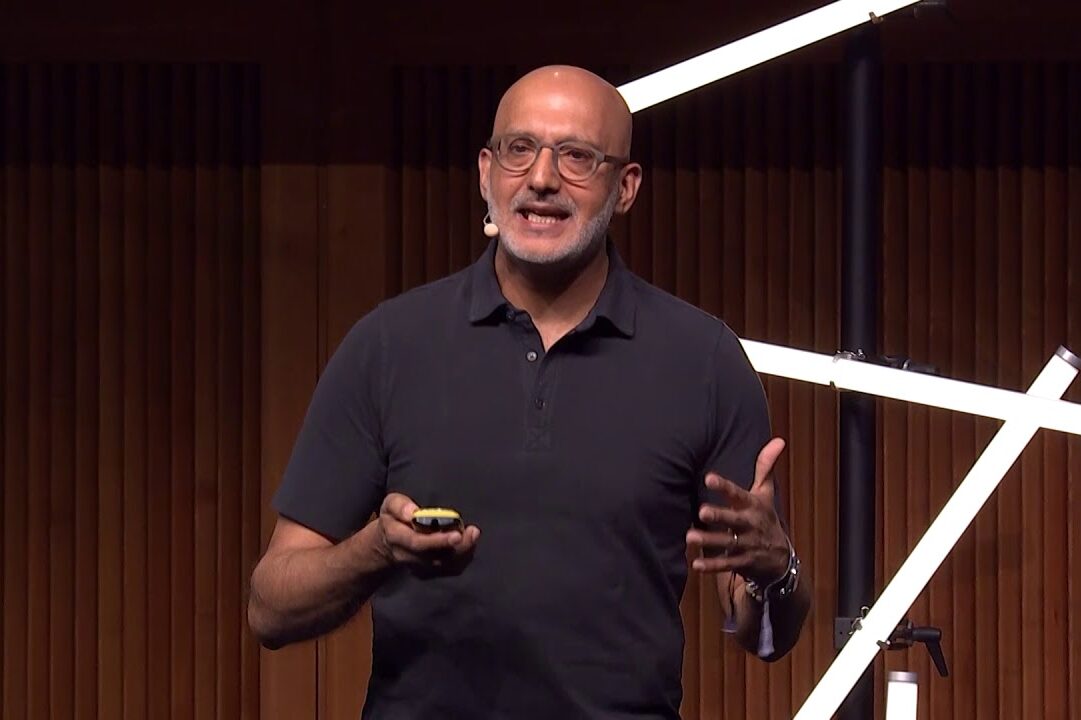
The English county of Cambridgeshire is best known for its world-class university, a true global centre of learning with a lineage that dates back hundreds of years. But over the last decade, Cambridge and its surrounding areas has morphed into one of Europe’s most important technology centres attracting high and future tech businesses, particularly in the areas of software, electronics and biotechnology.
This evolution has led to the area being dubbed the ‘Silicon Fen’ and is home to Cambridge Quantum Computing (CQC) – a small company making a huge impact in the world of quantum computing, rubbing shoulders with some of the biggest names in technology.
The business develops architecture-agnostic, enterprise quantum solutions to tackle some of industry’s most intriguing challenges in quantum chemistry, quantum machine learning, quantum cybersecurity and quantum software.
It is a business led by Ilyas Khan, a man who knows the area well, having been instrumental in the Accelerate Cambridge programme of investment in early stage Cambridge-based technology sector companies. At the same time, he was the founding Chairman of The Stephen Hawking Foundation.
It was this role that he credits with capturing his attention to the vast potential of quantum computing. Khan (pictured) was weighing up his options, including semi-retirement, when Hawking said quantum computing was “the real deal”. As endorsements go, it doesn’t get much better than that. After careful consideration, CQC was born.

Much has been written in recent years about quantum computing and its promise to change the world for the better, but without working in the epicenter of the sector it can be difficult to get a real feel for how realistic those promises are or when they might happen.
Khan draws comparisons with two technologies we now take for granted when explaining where quantum commuting is in its journey. “If you think of classical computing, quantum computing is in a similar situation to when the original operating systems were beginning to be developed,” he tells Digital Bulletin.
“Prior to operating systems, you had cadres of people who had to go into machines and work on bespoke programmes. But then came generic operating systems that allowed you to build applications on top. We are in those early stages of those generic operating systems coming through.
“I also liken where we are with quantum computing to mobile phones in the 1980s. The day the mobile phone arrived wasn’t the first day that sector existed; people had been working for years on networks, chipsets, handsets and programmes so that the first time someone pressed a button on a phone it could make a call.”
CQC sees itself as being integral to that burgeoning quantum computing ecosystem that Khan believes will be responsible for some of society’s next major leaps in science, healthcare and industry.
Pondering the potential time frames for some of quantum computing’s major breakthroughs, he says: “Late last year, Google did an experiment in what it describes as quantum supremacy, and the reason it was excited was because it had potentially found a way to extract maximum randomness from a quantum computer. That maximal randomness is a widely anticipated use case that I think will happen in the short term in a number of use cases such as encryption and Monte Carlo simulations.”
Computational chemistry has, to all intents and purposes, remained unchanged for a number of years, frustrating academics and researchers in a number of areas, perhaps most importantly healthcare where traditional computational methods have frustrated efforts for drug development and treatments. But Khan believes that there is evidence we could see a significant sea change in the near future.
“A computer runs out of computational power when you get to any structure with more than a few electrons in the atomic structure,” he says. “There are many reasons for that and it has been known for decades, the idea of a quantum computer came about when people started realising that if you had a quantum computer you could simulate these systems and know what the properties are of a particular new material.”
“Today, we stand on the cusp of having machines that can do that. Over the last few months – and this has nothing to do with COVID – we are seeing large corporations that know more than you or I beginning to migrate to using quantum computers for research into these areas. Previously they were interested but there was no proof that this could be useful to them. These are big companies that have to justify costs and for the first time ever they are interested in quantum computers for simulating quantum systems.
“How many years are we from a real-world breakthrough? People are cautious about being quoted in the public because they don’t want to look silly, which is why there are overly conservative estimates. But actually, we’re at the cusp where we’re no longer decades away. If you have a one year old, before he or she sits her 11+, and maybe earlier, quantum computers will have supplanted all classical computational chemistry. That’s not just revolutionary, this changes mankind for the better.”
CQC’s company’s expertise can be broadly separated into two areas – security and software. Its software headline act is ‘t|ket?’, an architecture agnostic quantum software stack and compiler, which translates machine independent algorithms into executable circuits, optimising for physical qubit layout whilst reducing the number of required operations.
In terms of quantum languages, CQC is competing with the likes of Qiskit, developed by IBM Research; Circ, developed by Google AI Quantum Team; and Q#, developed by Arthur Whitney and commercialised by Kx Systems.
“We looked at the machines and recognised how important it is to maximise the value from one machine, and you do that by allowing the machine to process instructions in a manner which maximises the shot you get,” says Khan. “Every time you look at a quantum computer instruction, how likely is it that the machine itself has a chance of getting to the end of its compute time and getting you a result? So, it is about optimising the existing hardware.
A startup star
In July, CQC became the startup-based hub in the IBM Q Network. As a hub, CQC will expand membership of the network with cloud-based access to the IBM Quantum Computation Center, which now includes 20 of the most-advanced quantum computers commercially available to explore practical applications for business and science, including eight systems with a Quantum Volume of 32, and a 53-qubit system – the largest available for clients in the industry.
It is a further strengthening of the ties between the two companies; CQC was part of the founding group of startups in the IBM Q Network’s startup programme, announced in 2018. IBM invested in CQC in January of 2020, and now have further deepened the relationship by becoming the first startup hub.
“There aren’t many companies with more expertise in quantum computing than IBM,” says Ilyas Khan. “For IBM to decide to invest in CQC is a validation that we really value a great deal, perhaps even more than the money itself, because it means somebody who knows about computational computers was willing to back that judgment with an investment.
“It’s something we’re hugely proud of to have shareholders like IBM, Honeywell and [Japanese multinational] JSR. They’re not companies that will choose to align and work with any business or because they see an element of potential. It is a real validation of what we’re doing.”
“The second thing at the other end of the scale is that if you are a company – and the most obvious users of these machines are large global companies – they’re not going to have many people that are qualified in quantum computing, because it is a really small set. You want to make it easier for them and help them access a computer using existing languages that are in use today – Python is a good example.
“Between those two extremes, how do you get the best out of the machine and allow a potential user to access quantum without them fainting or giving up because they think it is just gobbledygook, because quantum is wholly different from classical? It was that problem we solved with t|ket? by getting something into the market earlier by solving those two problems.”
CQC has also built a photonic quantum device – IronBridge – to provide unhackable security that is certified by the laws of quantum mechanics. CQC says it is the only encryption device that ensures device independence and source certifiability to be used for post-quantum encryption algorithms, cached entropy generation for IoT devices, key generation for certificates, quantum watermarking and many other use cases.
Khan believes that CQC’s ability to punch above its weight is down to its lazer focus on science. “We’ve got as good a team in numbers and in the quality of anybody out there that is operating in the same area as us,” he says. “I’m not going to compete with the hardware guys, they are different and have dozens of engineers. But our strength is on the 80 scientists we have in the business, 50 of whom have PhDs – that is a huge statement of intent.”
As our conversation draws to a close, Khan is keen to stress how important he considers the company’s UK base; it is clear that he sees CQC’s position as a successful UK startup in the quantum computing space as part of the company’s fabric.
“The UK has an objective and ambition to be the leader or one of the leaders in quantum computing and we really feel as if we are flying the flag,” Khan concludes. “It’s a real opportunity to compete with the United States, Germany and China, all of which have committed to a quantum future. Germany has stated that the next industrial revolution for the country and its economic wellbeing is linked to its success in quantum.
“The UK was fortunate enough to be at the forefront of the first industrial revolution and the impact that had on people’s lives. With quantum computing, I really believe the country has a chance to do that again and be a leader.”



